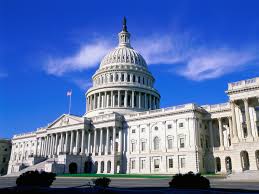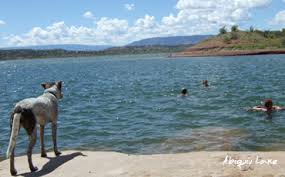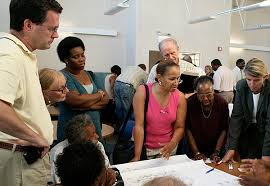There is actually so much to talk about at this moment – presidential contest, race relations, gun violence, natural disasters, homeless refugees worldwide – that I am paralyzed. I just can’t go there.
And so I am going to look to the upcoming holiday, Labor Day, and say something in praise of laborers, something that I have been meaning to say for a long time. “I love bureaucrats.” I’m not saying that I love them all. The ones who give the word “bureaucrat” a bad name are running Tupperware businesses out of their desk drawer, playing hours of Candy Crush or Words with Friends on their smart phones, shopping for a pop up tent or a set of golf clubs online, or just putting in time waiting for retirement.
 But the ones I want to talk about are true civil servants, committed, even passionate about being that critical link between government and citizens. They could be working elsewhere, in an office with a window even, making more money, receiving more admiration, but because they care and believe in the system they are squirreled away in a cubicle, doing their best for the rest of us. They are committed to making government run smoothly and efficiently. They know they are tiny cogs in a huge machine, but they also know that every cog is critical, every cog is connected to other cogs, and the whole depends on these well-oiled parts humming along.
But the ones I want to talk about are true civil servants, committed, even passionate about being that critical link between government and citizens. They could be working elsewhere, in an office with a window even, making more money, receiving more admiration, but because they care and believe in the system they are squirreled away in a cubicle, doing their best for the rest of us. They are committed to making government run smoothly and efficiently. They know they are tiny cogs in a huge machine, but they also know that every cog is critical, every cog is connected to other cogs, and the whole depends on these well-oiled parts humming along.
In my more than 25 years as a public policy mediator, I have run into a ton of bureaucrats, many of them outstanding and dedicated. I want to introduce you to three of them.

Yolynda Begay grew up on the Navajo Reservation in Arizona. I first met her when she was a graduate student in planning at the University of New Mexico and working as an intern for the Forest Service. She was interested in learning how to facilitate, with the goal of helping the agency and tribal people understand each other better. I mentored her over the years, and she is now the Tribal Liaison for Region 3 of the Forest Service, encompassing New Mexico and Arizona and dozens of tribes. I wouldn’t be surprised if she is Washington, DC, someday soon, having an even wider impact. Yolynda is able to maintain her Native identity, practice her culture, and perform as a professional for the Forest Service. She is criticized by some in Indian Country who feel that being a tribal member on the federal payroll she is selling out. She knows better; she knows there is a critical role in building that bridge between tribes and the federal government and she is doing a brilliant job.

Colonel Mike DeBow is one of my heroes. Many years ago he served as head of the Albuquerque Division for the Army Corps of Engineers and was responsible for recreation safety at Abiquiu Reservoir in Northern New Mexico. He proposed to condemn land around the reservoir and build boat ramps, picnic spots, etc. The traditional Hispanic community was irate and the community meetings that I facilitated for the Colonel were explosive. The federal government had abused local landowners and ranchers for decades, locals said, and this was the last straw. The Colonel had the authority to condemn the land, but he chose to listen night after night to heart-wrenching testimony about the cultural and economic value of that land. And he really listened. He set his proposal aside and sat down with the community leaders and crafted a solution that satisfied his legal needs and their survival needs. He cared deeply about his responsibility as a bureaucrat, but in that definition of bureaucrat he included a responsibility to learn from those on the ground and find a way to work together.
Elissa Tonkin is with EPA in Boston. She saw her agency too often at  odds with the communities they were supposed to protect and the companies with whom they needed to negotiate. In her quiet, but powerful way she worked to shift EPA’s priorities and approach. She carved out a niche for herself and became a one-person conflict resolution and facilitation department, representing her agency in a new collaborative role. In time, Ellie’s shop has grown into a cadre of other professionals, making her region a leader in community relations and conflict resolution. Thanks to Ellie, EPA Region 1 has the capacity to respond to community needs, build relationships with community leaders, and avert conflicts. She is smart, funny and a great bureaucrat, the best sense of the word.
odds with the communities they were supposed to protect and the companies with whom they needed to negotiate. In her quiet, but powerful way she worked to shift EPA’s priorities and approach. She carved out a niche for herself and became a one-person conflict resolution and facilitation department, representing her agency in a new collaborative role. In time, Ellie’s shop has grown into a cadre of other professionals, making her region a leader in community relations and conflict resolution. Thanks to Ellie, EPA Region 1 has the capacity to respond to community needs, build relationships with community leaders, and avert conflicts. She is smart, funny and a great bureaucrat, the best sense of the word.
Ellie kindly wrote a review of my book on mediation. She commented on my use of the term “bureaucrat” in the book, fearing that it had a derogatory feel to it. She would have preferred “civil servant,” she said. I hope this post does a little to redeem the word “bureaucrat.”
So, Ellie, Yolynda, and Colonel DeBow — bureaucrats or civil servants — thank you for serving us all so well. And, Happy Labor Day.

Great post Lucy. You have given the word bureaucrat an entirely different context.
exactly my hope! Thank you.
Thanks for sharing your wise insights. Bravo to all these folks who do their best to keep our government on the right track.
Thanks, Anne, and let’s include those fine Navajo law enforcement officers who serve us so well in your books and your dad’s! Oh — they’re fictional, I forgot for a moment, but still they are great role models.
Thanks, Lucy. I love your stories, as always. Your title grabbed me right away. I think you’ve captured the spirit of our best civil servants. Maybe that term will start to take hold. People like Ellie Tonkin, Yolynda Begay and Mike DeBow are, indeed, civil servants and servant leaders in the best sense of the phrase.
Fondly and with wishes for a happy Labor Day weekend.
Happy weekend to you, too, Suzanne, and thanks for the work you do, guiding future lawyers on a good path.
Great blog my friend.
Thanks, Ella, and hats off to Richard, a fine bureaucrat, retired!
Thanks Lucy too bad this is not required reading for many of our citizens so they can get a sense of what their tax dollars are getting them. As a former bureaucrat, it has been especially depressing over the years to hear the people talk disparagingly about the work that is done by civil servants and the people who do that most important work. This is reinforced by politicians or others who are broken records with the goal of “reducing government”. I was thinking about this yesterday while listening to an NPR program on the length of time it takes for EPA to respond to certain issues. Knowing that EPA’s budgets and workforce has been systematically reduced while problems remain, I can’t help but wonder about our future. And although I don’t know Colonel DeBow or Yolynda, I do know Ellie. I have had the pleasure of working with her over the years. She is a true example of a dedicated civil servant, ahem….bureaucrat. We are all lucky that she holds us gently in her work. Thank you for introducing us to these three.
Thank you, Lori, and it is a loss to us all that you have retired from EPA. You brought an incredibly valuable sensibility to those you worked with and trained.
Definitely an attention grabbing title. Many of us have experienced both, but we somehow always remember the stereotypical ineffective one. I have had the good fortune to know many at the local, state and federal level that are as those you presented. Thank you for reminding us.
My father was a civil servant, and I was once a bureaucrat also. We could blame the Evil One Number Two for speaking so ill of “guvmint.”
Now we have lots of self righteous independent “liberals” who are free to criticize because they never have any skin in the game. Real work requires listening to all sides, always seeking the happy medium.
…the happy medium, hopefully, or at least less unhappy. Oops my glass half empty self is showing.
equally least unhappy
Love this and agree and have felt same way about this word. Respect here for bureacrats in service to what matters most in our human lives and on earth. Really! That much.
Thanks, Nedra. I’ve been so pleased with the response to this post — thought I might get a lot of pushback.
You are so right, there are some mediocre people, and even some duds. And then there are the kinds of people you profile who are dedicated, hardworking and caring people. Thank you for honoring them. Especially in these times, I wonder who will aspire to public service when it is so often denigrated or used as a scapegoat by those in political office.
Thanks, Chris. Just realized I am the proud mother of two federal bureaucrats! And I agree that the scapegoating is grossly unfair.
Thanks for validating what so many of us have done. Another piece of the work is advocating for and supporting community personnel recruitment and supervision.
Can’t wait to see you soon!
Thanks Lucy,
I always appreciate your insights and I like prefer the term civil servant for those doing the good works!
Lucy,
Thank you. Much needed statement when public service has been taking a beating for many years. Thank you.
Ann